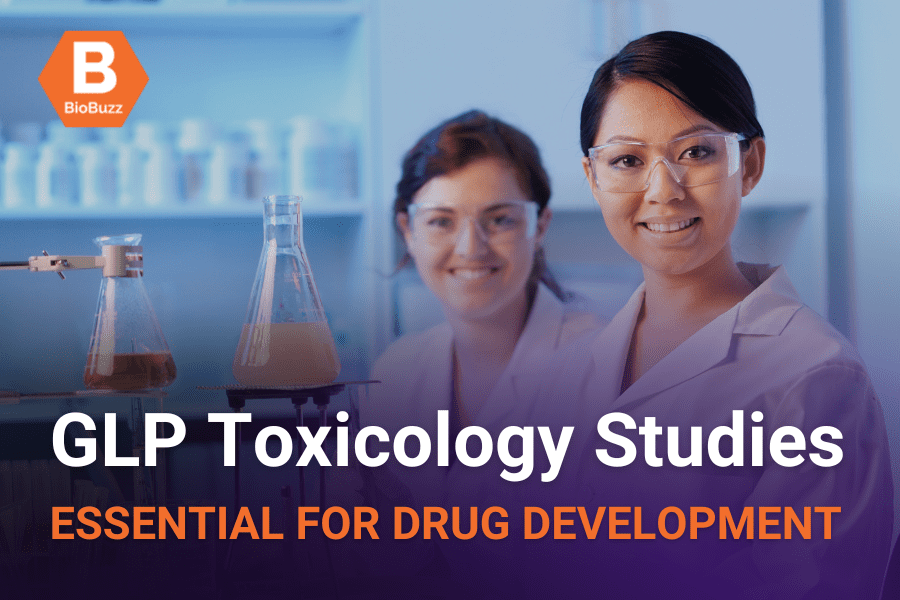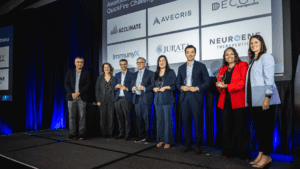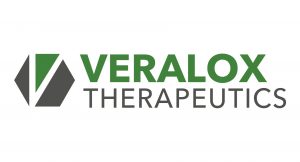
GLP Toxicology Studies: Essential for Drug Development
Discover the significance of GLP toxicology studies for drug development. Partner with Noble Life Sciences, a trusted CRO for successful preclinical research.
By Mark Terry
July 11, 2023
| BioBuzz has been connecting the life science workforce since 2009. We’ve built an expansive community in the Mid-Atlantic with a national readership that spans from Massachusettes to Florida, and New York to California. For our next chapter, we’re building a proprietary talent logistics model to help employers source and hire life science talent. Learn more. |
Before a compound can reach commercial customers, it must pass through several stages of rigorous testing to ensure it’s safe for human use. While earlier steps involve gathering toxicological and safety data in at least two preclinical species, evaluating different batches of the product, and testing preclinical, clinical trial, and toxicology lots, the final phases are especially demanding: the formal Good Manufacturing Practices (GMP) manufacturing phase, culminating with final submission of an Investigational New Drug (IND) or Biologic License Application (BLA) to the U.S. Food and Drug Administration (FDA).
To ensure drug developers are prepared for these reviews, regulators like the FDA generally recommend in international standards for nonclinical studies, such as the Good Laboratory Practice (GLP) guidelines. The importance of adhering to these guidelines from the onset of a research program cannot be understated – they evaluate the safety of compounds for early human testing, establish the therapeutic dose range, identify possible adverse effects, and confirm the batches align with the desired characteristics of the new drug.
Considering the importance of GLP toxicology studies, it is imperative to collaborate with a knowledgeable Contract Research Organization (CRO). By partnering with an experienced CRO, patient safety can effectively facilitate the progress of therapeutic development.
Noble Life Sciences, preclinical CRO headquartered in Sykesville, Maryland, has extensive experience in successfully designing and implementing preclinical studies. In addition to operating an AAALAC-accredited small and large animal facility, it offers a full continuum of GLP and non-GLP services in oncology, infectious diseases, and diabetes.
At the core of Noble Life Sciences operation is expertise – the company’s PhD and Master’s level scientists senior staff have 25 years of industry experience working closely with sponsors, negotiating the development process, partnering with quality assurance professionals, and ultimately getting new compounds over the FDA finish line. The following provides an overview of the company’s GLP toxicology study process.
Pre-Study and Study Initiation
In order to pass the GMP stage, and subsequently receive FDA approval, product developers must collect and document sufficient data leading up to and during this evaluation.
It has been long understood that key regulatory bodies in the space – namely the FDA – have highly specific expectations for personnel qualifications, training, and manufacturing facilities. These requirements include maintaining strict cleaning practices, minimizing the risk of cross-contamination, and ensuring the use of approved and calibrated equipment and processes. Furthermore, the personnel involved in the manufacturing process must possess the necessary qualifications and receive appropriate training to meet these standards.
Organizations that wish to move through trials quickly and successfully must a strategic production plan in place, proper documentation at the ready, and a strong understanding of Standard Operating Procedures (SOPs). This plan needs consideration of clinical dose quantities, dosing regimens, and administration methods during the initiation phase, inclusion of preclinical and clinical aspects, approval from both a Project Scientist and Quality Assurance (QA), and consistent alignment with the synthesis, batch production, manufacturing, and scale-up of the compounds. In short, effective FDA submission won’t come to fruition without these components.
Throughout each of these hurdles, Noble Life Sciences works closely with sponsors to gain a clear understanding of the study’s objectives, design appropriate protocols, and ensure compliance with regulatory requirements. With a deep understanding these sponsor needs, Noble Life Sciences facilitates a smooth and successful pre-study and study initiation process.
Experimental Procedures and Collaborative Approach
To effectively asses the toxicity and effectiveness of new molecules ahead of GMP and FDA submissions, Noble Life Sciences takes a collaborative approach to each partnership. This method enables the Noble team to tailor a wide range of experimental procedures to the diverse needs of toxicology research. These flexible procedures encompass four main types of toxicology studies:
- Discovery toxicology: A crucial element of the selection process, this type of study evaluates, characterizes, and ranks new molecules based on toxicity and efficacy.
- Investigative, custom, and special toxicology: To assess unexpected, unusual, toxicological or pharmacological events, these studies evaluate the tolerability, efficacy, and pharmacology of novel, complex, or unusual studies.
- Efficacy-toxicity studies: Under both Good Laboratory Practice (GLP) and non-GLP conditions, these studies provide insights into the systemic effects, toxicity, histopathology, and immunohistochemistry of various systems – such as muscle and nerve – to better understand the efficacy and toxicity of the molecules being tested.
- Regulatory toxicity: This service ensures the rapid initiation of studies and the preparation of reports to help sponsors meet deadlines or milestones, all while adhering to regulatory guidelines.
Toxicology research encompasses a broad spectrum of services, often requiring agility and flexibility. To ensure its range of services is comprehensive, Noble Life Sciences provides single-dose, multiple-dose, and targeted studies for the early evaluation of new molecules. The team also offers directed or investigative toxicology, complete IND-enabling toxicology programs, and long-term carcinogenicity studies.
By closely collaborating with sponsors, Noble Life Sciences is able to quickly gain a clear understanding of study objectives and efficiently design appropriate protocols. It works diligently to ensure regulatory compliance throughout the experimental procedures for a seamless and successful toxicology research process.
Data Analysis and Reporting
From the first stage to the last, there’s one aspect of toxicology research that makes or breaks approval from regulatory bodies: the analysis and reporting of data in line with regulatory requirements.
For every Investigational New Drug (IND) application, the FDA has defined specific requirements which must be reviewed prior to the launch of clinical trials. These guidelines vary depending on whether the pharmaceuticals in question are small molecules (see FDA Guidance M3 (R2) and S6 (R1)).
Additionally, the FDA has adopted nine regulatory guidance templates that outline the specific submission requirements for toxicological data. These templates can be found on the FDA’s website and include:
- Subchronic Toxicity Study in Rodents
- Subchronic Toxicity Study in Dogs
- Genetic Toxicity Study: in vitro Bacterial Reverse Mutation (Ames) Test
- Genetic Toxicity Study: in vitro Mouse Lymphoma Thymidine Kinase Gene Mutation Assay
- Genetic Toxicity Study: Mammalian Erythrocyte Micronucleus Test
- Genetic Toxicity Study: in vitro Mammalian Chromosomal Aberration Test
- Chronic Toxicity Study with an in-utero phase
- Chronic (1 year) Dog Toxicity Study
- Two-Generation Reproduction Toxicity Study
The FDA has stated that the purpose of these documents is to help the industry prepare toxicology reports that already contain standardized formats and vocabularies consistent with the agency’s latest recommendations for toxicological information.
Despite the public posting of these standards, navigating the complexities of regulatory requirements is still a challenge for many organizations. Enter a partnership with an experienced organization such as Noble Life Sciences – with decades of experience in the field, it possesses the expertise to determine which toxicological studies are appropriate for your specific toxicology program and how to present your findings.
By leveraging its invaluable knowledge, Noble Life Sciences can ensure that your data analysis and reporting align with regulatory requirements and industry best practices ahead of final submission.
Compliance, Quality Control, and Reporting
Noble Life Sciences places strong emphasis on compliance, quality control, and accurate reporting throughout the toxicology research process, ensuring all regulatory standards maintain the integrity of its studies.
To comply with regulations, Noble strictly follows Good Laboratory Practices (GLPs) established by regulatory bodies. These practices not only contribute to successful approvals; they also guarantee consistent and reliable results in nonclinical research involving animals, therefore protecting public health.
This approach takes place in tandem with open sponsor communication and collaborative design protocols, ensuring integrity and adherence to regulations in all research phases.
By prioritizing compliance, quality control, and accurate reporting, Noble Life Sciences instills confidence in sponsors that their toxicology studies will meet regulatory requirements and contribute to the development of safe and effective pharmaceuticals.
Conclusion
Though just one component of the comprehensive development program required for FDA submission, GLP toxicology studies are an essential for success. Choosing the right CRO partner is a crucial decision, and many factors such as quality, timely data and report delivery, adherence to the Standard for Exchange of Nonclinical Data (SEND), and available support services all merit serious consideration. If you’re seeking assistance with your therapeutic development program, reach out to a representative at Noble Life Sciences to see how the organization can support your therapeutic drug program goals.
References
- Carroll EE. Going GLP: Conducting Toxicology Studies in Compliance with Good Laboratory Practices. US Army Med Dep J. 2016;(3-16):64-9. https://pubmed.ncbi.nlm.nih.gov/27613211/
- About the Author
- Latest Posts
Mark Terry is a freelance writer, editor, novelist and ghostwriter. He holds a degree in microbiology & public health and spent 18 years in infectious disease research and clinical and research genetics prior to his transition to a writing career. His areas of expertise include biotechnology, pharma, clinical diagnostics, and medical practice management. He has written literally thousands of articles, as well as market research reports, white papers, more than 20 books, and many other written materials. He currently lives in Michigan with his family.






